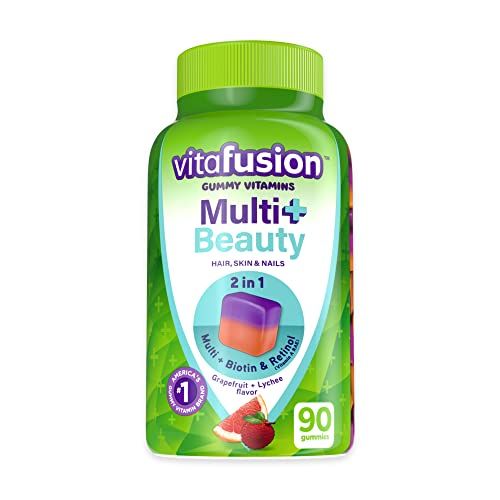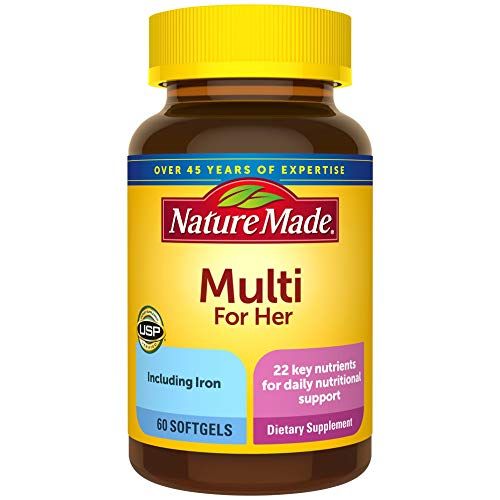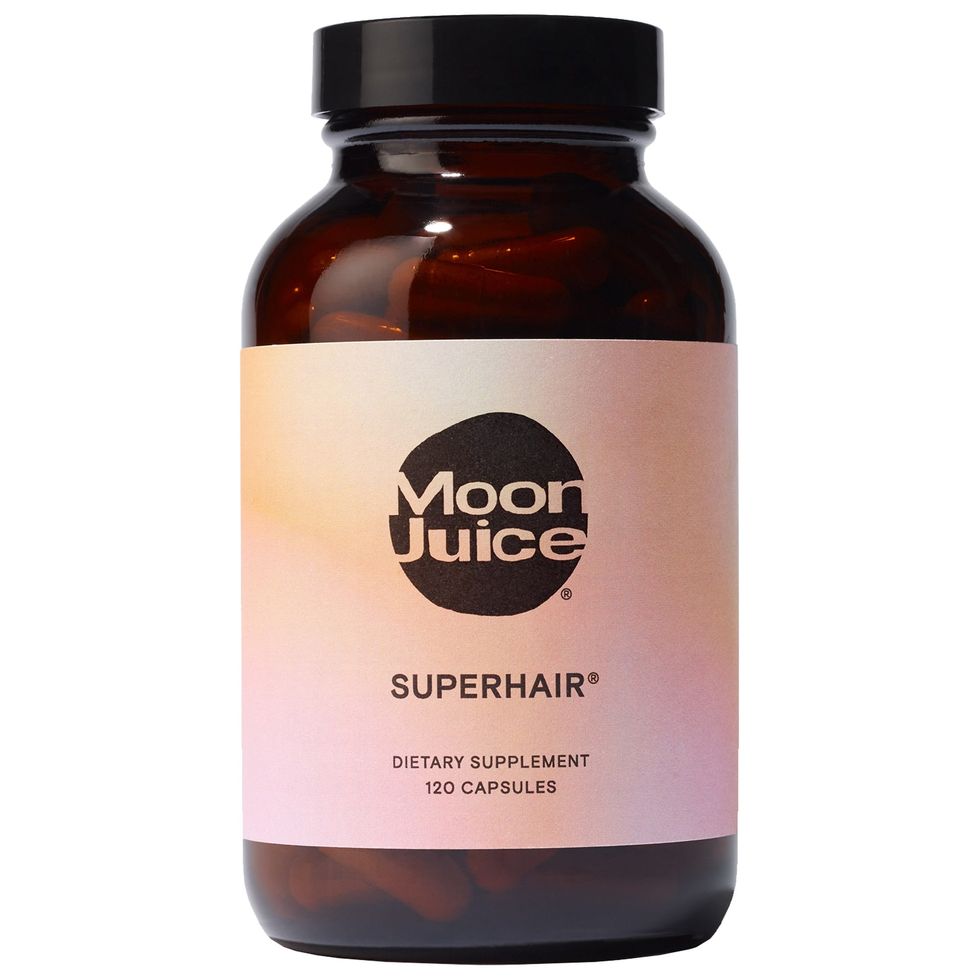You’ve probably noticed that your hair could use some extra care. It’s possible that your hair is sparse, falls flat, or is taking a long time to grow out of your current style. Vitamins for hair growth may be more beneficial than you realize, regardless of your concern.
According to Dendy Engelman, M.D., a board-certified dermatologist at Medical Dermatology & Cosmetic Surgery in New York City, “Hair growth supplements are helpful for anyone who is experiencing hair loss, hair thinning, or for those who just want thicker or longer hair.”
How do vitamins for hair growth work?
All cells, including those in your hair follicles, are fed when you take an oral supplement because it is absorbed into the bloodstream. Just be aware that vitamins for growing hair work more indirectly.
According to board-certified dermatologist Ife J. Rodney, M.D., founder of Eternal Dermatology Aesthetics and professor of dermatology at Howard University and George Washington University, “there are few, if any, vitamins that specifically target hair growth.” However, she adds that some vitamins can affect hair growth “overall health.”
According to Joshua Zeichner, M.D., director of cosmetic and clinical research at Mount Sinai’s Icahn School of Medicine, ” We know that nutritional or vitamin deficiencies are linked to thinning hair; for instance, patients with anemia and vitamin D deficiency may notice hair loss, he states. Therefore, we always want to verify that the levels of iron and vitamin D are adequate. Simply put, if your vitamin or health intake isn’t up to par, your body will focus on that and may divert vitamins that are good for your hair from your strands.
What to look for in a vitamin for hair growth?
Dr. Rodney asserts that while overall health is essential for hair growth, a few nutrients are also essential for hair health. She suggests looking for a vitamin for hair growth with the following ingredients:
Vitamin B7 is called biotin This vitamin, which dissolves in water, aids in the production of keratin—the protein that makes up your skin, hair, and nails. Although it primarily aids in nail growth, Dr. Rodney suggests that there may be some overlap with hair growth.
Vitamin C plays a role in the body’s production of collagen, a protein that can help strengthen the skin at the hair roots, and keratin. According to Dr. Rodney, both are crucial to the elasticity, strength, and luster of hair.
Zinc. According to Dr. Rodney, this “helps to boost overall immunity.”
According to Dr. Engelman, other high-quality nutrients to look for include vitamin A, other B vitamins, omega-3 fats, selenium, and magnesium. However, over-the-counter topical minoxidil 5%, according to dermatologist Cindy Wassef, M.D., assistant professor at the Rutgers Robert Wood Johnson Medical School, is a “great start” if you want to treat your hair loss without taking vitamins.
When to talk to your doctor about hair growth?
You should give the supplement route some time to work if you try it. According to Dr. Zeichner, “if you are already using supplements at home and they are not helping after about a month, it may be time to check in with your dermatologist to make sure you are using the right products for your hair needs.”
How to choose the best vitamins for hair growth?
If you’ve ever tried to buy a supplement for hair growth, you know how many bottles there are. According to Debra Jaliman, M.D., a board-certified dermatologist in New York City and the author of Skin Rules, “it’s best to read labels and check for ingredients we really want.”
The Food and Drug Administration doesn’t regulate dietary supplements like it does drugs, so it’s important to read the ingredients carefully. Additionally, you should always consult your physician prior to taking one to ensure that it will not interact with any other medications you are taking.
Here are the most effective vitamins and supplements that will help you grow hair that is healthier and shinier—they are good enough for dermatologists, so now that you know the basics.
Products that are meant to be added to the diet are called dietary supplements. They are not intended to treat, diagnose, mitigate, prevent, or cure diseases and are not medicines. Supplements should be taken with caution if you are pregnant or nursing. Additionally, supplement administration to children should be avoided unless prescribed by a medical professional.
1. Nutrafol
This supplement is preferred by Dr. Engelman to target thinning. She cites vitamin E, ashwagandha (a type of herb), anti-inflammatory biocurcumin, and other highly concentrated botanicals as examples. “This addresses every stage of the growth cycle,” she says. It has been shown to be effective in numerous clinical studies. Every day, I tell my patients about it.
According to a peer-reviewed study that was funded by Nutrafol and published in the Journal of Drugs in Dermatology, women who said their hair was thinning reported improved growth and thickness six months after taking it. After three months, the researchers also observed an increase in hair density.
2. Vitafusion Vitafusion Multivitamin Plus Beauty

These gummies, which are packed with biotin, vitamins C and E, as well as other essential nutrients like zinc and folate, not only make hair look and grow better, but they also make brittle nails look better. One content Amazon reviewer stated, “This stuff enhances my curl pattern and puts a stop to breakage, split ends, and knots.” Additionally, I’ve noticed that my hair is a little longer and thicker.
3. Hum Hair Sweet Hair Growth Vegan Gummies
These adorable chews contain biotin, zinc, B12, PABA, and folic acid all in one bite. It is believed that PABA helps darken gray hair.
One Sephora customer wrote, “I’m a highly skeptical person, but I took these gummies for a month and there’s been an obvious improvement in my hair.” My hair was growing a little faster than usual, and that was the first thing I noticed. The softness of my hair came next. Last but not least, and most likely my favorite outcome, was how little I was losing. I usually lose a few in the shower, but lately it’s been much less!
4. Nature’s Bounty Biotin
Several different hair supplements contain this B vitamin and for good reason. According to Dr. Engelman, biotin is a water-soluble vitamin that aids in the breakdown of fats and carbohydrates, which aids in the growth of hair, skin, and nails. If you run low, you might notice that your hair is weak or start to lose it.
She asserts that while the vitamin will likely speed up hair growth, it will not increase thickness. However, it is a good place to start because it is significantly less expensive than other supplements. Nature’s Bounty Biotin is one good biotin supplement that Dr. Jaliman recommends.
5. Viviscal Extra Strength Dietary Supplements
According to Dr. Engelman, Viviscal “uses vitamins to extend the anagen (growth) phase of the hair growth cycle.” It also includes horsetail extract and a marine complex. A 2015 study that was published in Dermatology Research and Practice found that adult women who took Viviscal for 90 days had more hair volume and lost significantly fewer hairs when they washed their hair than women who took a placebo.
6. Ouai Hair Supplement for Thinning Hair
Ashwagandha is in this supplement to help control the production of the stress hormone cortisol, which can cause hair loss. Amino acids serve as the building blocks for the production of keratin, a protein that makes up the majority of your hair, and biotin also speeds up growth. Vitamins C and E also prevent premature loss by activating antioxidant defenses.
7. Nature Made Multi for Her Softgel

Dr. Friedler says that a good basic multivitamin can help a lot with hair growth. This is because multis meet your needs for hair: zinc, iron, biotin, and vitamins C and D. Nature Made’s one is reasonably priced (only 22 cents per day!), is safe according to USP, comes in a soft gel form, and is easy to swallow.
8. Keranique KeraViatin Hair & Scalp Health Supplements
In addition to zinc, antioxidant curcuminoids, and amino acids like L-cysteine, this supplement contains a variety of B vitamins that assist the body in breaking down nutrients that support hair growth. According to Dr. Jaliman, cystine is an amino acid that helps the body maintain the structure of proteins and is one of the most important amino acids for hair growth. It is made up of two cysteine molecules.
9. One A Day Women’s Prenatal 1 Multivitamin
Regardless of whether or not you are pregnant—and even if you do not intend to be!— According to Suzanne Friedler, MD, a board-certified dermatologist with Advanced Dermatology PC and clinical instructor of dermatology at Mt. Sinai Medical Center in New York City, “a prenatal can benefit your hair.” She states, “The nutrients you need to support hair growth in sufficient concentrations are contained in a prenatal vitamin.” Iron is especially abundant in prenatal foods. Iron deficiency is a common cause of thinning hair in many of my patients, she states. The fact that this One A Day contains biotin and iron—28 mg—is what makes it so appealing.
10. Moon Juice SuperHair Daily Hair Nutrition

A multivitamin with vitamins A, B, C, D, E, and K, as well as adaptogenic herbs like ginseng and ashwagandha, which help buffer your body’s stress response, are included in this supplement. These might help you keep the hair you do have because stress is linked to hair loss and thinning. Users report that they notice less hair loss in the shower and noticeable hair regrowth, which makes them happy.
